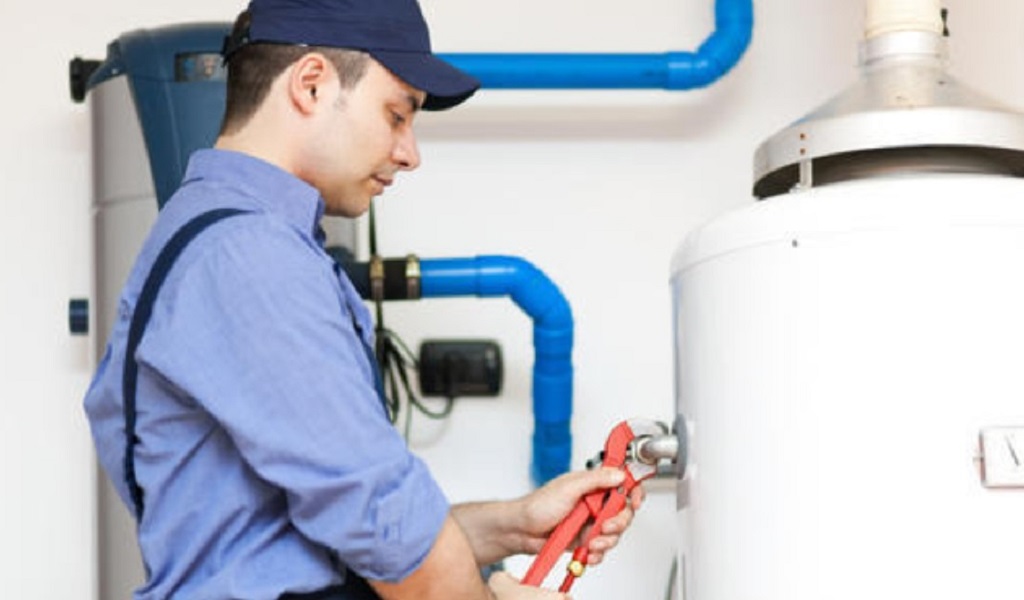Did you know that the average house in the United States is now worth approximately $350,000? Some people have found it difficult to purchase a home as a result. Many others, though, have used this as a great investment opportunity.
Owning a home comes with many responsibilities that you can’t neglect. One of the most prominent is replacing or repairing appliances when they break. For example, you may wonder, “why is my water heater leaking?” We’ve put together a brief guide full of water heater tips to help you figure out this issue and develop the appropriate solution. Let’s dive in.
So, Why Is My Water Heater Leaking?
Understanding the reason behind the leak is the first step to making the proper repairs. Although they can initially seem overwhelming, the causes are often fairly straightforward.
Here are a few of the most common.
A Broken Pressure Relief Valve
This valve is designed to open when the tank overheats or has too much pressure, causing water to leak. It can cause substantial damage to your water heater if not prepared. It’s best to perform regular checks for this reason.
Corrosion Within the Tank
Over time, sediment can build up inside your water heater tank, leading to corrosion and the eventual formation of leaks. It is one of the most common reasons why water heaters leak. So, be sure to consider it when moving forward.
A Cracked or Rusted Tank
The age of your water heater could be a factor as well. Older tanks are more prone to cracks and rust, which can lead to leakage. If you have a newer tank, there is likely another cause. Can I Make Repairs on My Own? In most cases, it’s better to call a professional to help with repairs. Water heaters contain electrical components and pressurized water lines, which can be dangerous if mismanaged. Plus, professionals have the experience necessary to assess the issue quickly and develop an effective solution.
That said, it is possible to make some repairs on your own. For example, you may be able to add sealant or replace a broken temperature and pressure relief valve without professional help. You can also flush out your water heater tank to eliminate sediment buildup and reduce the risk of corrosion. Regardless, it’s always important to use caution when dealing with any part of your water heater. Be sure to turn off all power sources before beginning repairs.
What Should I Look For in a Professional?
Only some professionals you hire will be equally-qualified. So, it’s crucial that you adequately research your potential options. To get started, perform a quick Google search to look into their past reputation. The only way to know what you can expect this by seeing what others have had to say. The more you research, the more likely you are to make the best decision.
Working with someone that has significant experience in the industry is also crucial. It will help ensure that they can meet all of your needs. Looking at their past work can help provide the answers you need. Ensure you avoid companies that have not previously worked with people like you. Without this consideration, you run the risk of encountering issues in the future. Only decide after looking at their billing structure.
You can then be sure to avoid unexpected costs later on. How easy is it for you to communicate with them? The right professional will be easy to talk to and get in touch with. In some cases, you may need to replace the entire unit. You can check out this page to learn more about water heater replacement.
How Can I Prevent Leaks in the Future?
You can take a few simple steps to reduce the risk of future leaks. For example, it’s important to flush and maintain your water heater tank regularly. It will help eliminate sediment buildup and decrease the chances of corrosion. Additionally, check your pressure and temperature relief valves every once in a while to ensure they’re in working order. If you notice any issues, have them replaced as soon as possible.
Finally, consider investing in a water heater that’s more energy efficient and has better insulation. It will help reduce the risk of your tank overheating and experiencing pressure buildup, which can lead to leaks over time.
What Are the Consequences of Neglecting Water Heater Repair?
It’s necessary to address any water heater leaks as soon as possible. If left unchecked, they can lead to severe damage and even flooding in your home. Additionally, neglecting an issue could void your warranty or cause a decrease in the tank’s performance. It’s also worth noting that the damage caused by a water heater leak could also make it more challenging to sell your home. Buyers will be reluctant to purchase a property they need to invest money in to repair. They may also wonder if the home has other underlying issues if they notice water heater leaks.
Never Overlook Water Heater Leaks
If you notice any signs of leaking from your water heater, it’s necessary to act quickly. Repairing the issue as soon as possible can help you avoid costly damage in the long run. So, keep the above answers to “why is my water heater leaking” so you can take the appropriate measures.
Are you looking for other helpful information to help you in the future? Be sure to check out the rest of our blog.

















